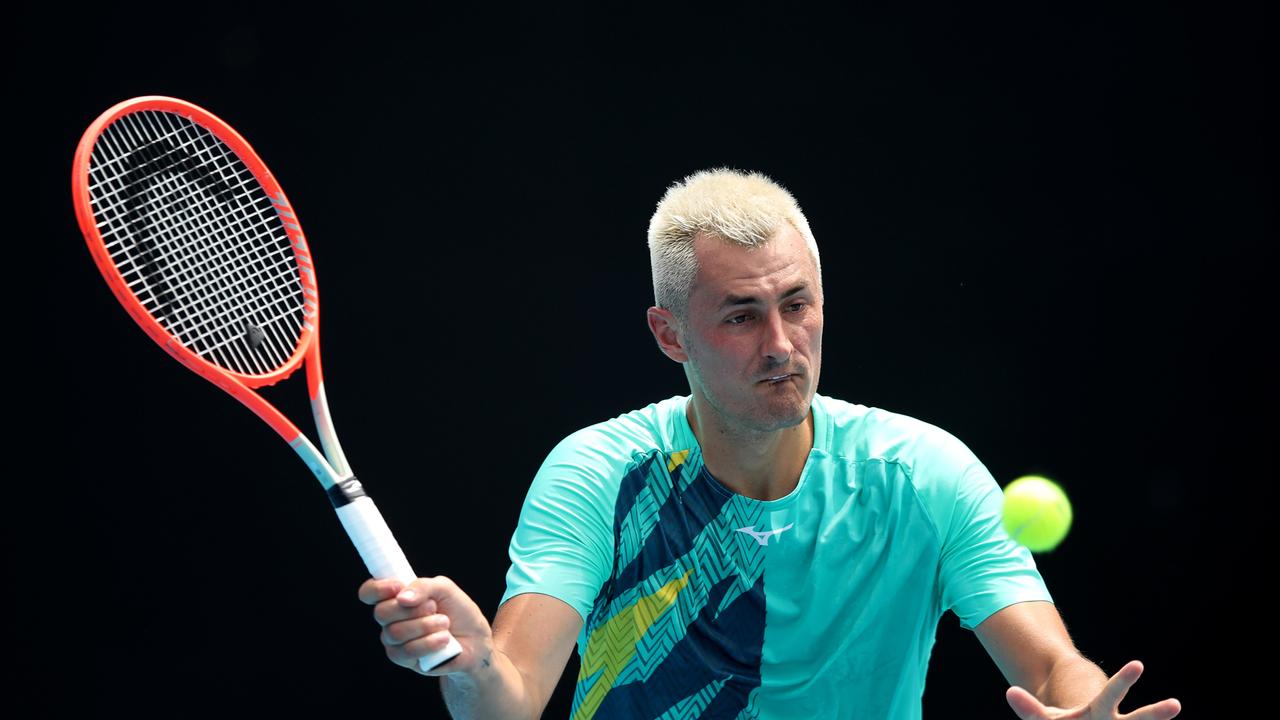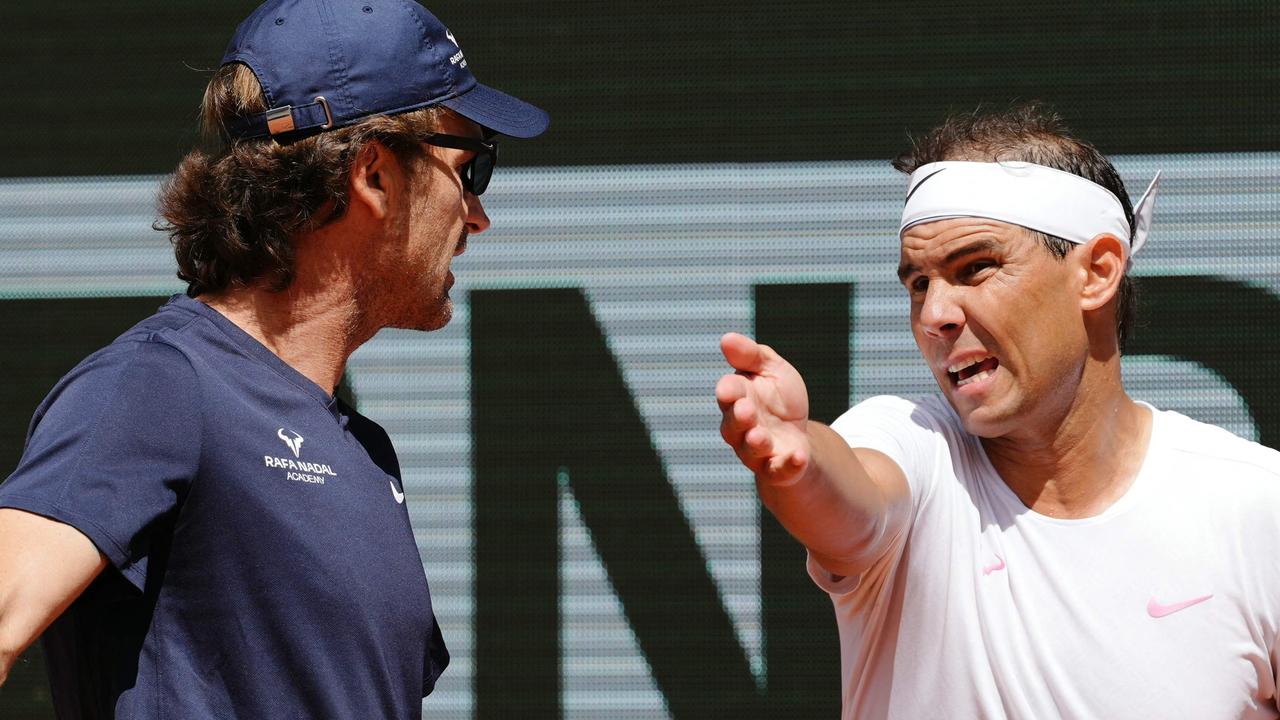Ash Barty book extracts: Read Aussie tennis legend’s own words on her life and glittering career
Ash Barty lost control. As her childhood Wimbledon dream dissolved, she lashed out in an epic meltdown — and her coach, having seen it all before, knew something was wrong.
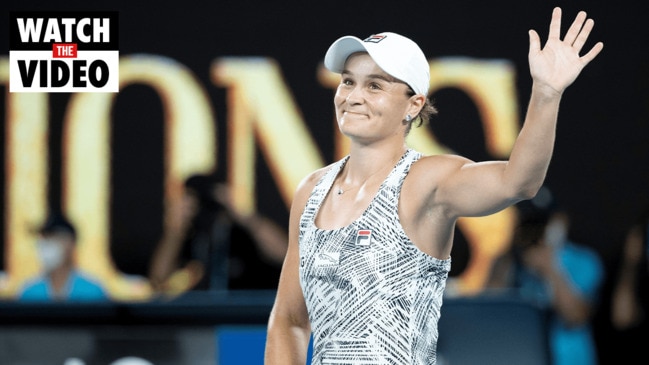
Tennis
Don't miss out on the headlines from Tennis. Followed categories will be added to My News.
For the first time, tennis great ASH BARTY is sharing her extraordinary life story, on court and off, in a much-anticipated memoir. This exclusive first extract from My Dream Time highlights key stages of her sporting journey, starting with a crisis that changed everything and ultimately put Barty on the path to glory.
THE WOLVES OF WIMBLEDON: 2018
I hear two voices when I’m playing tennis. I always have. One whispers, ‘Ash, you’re not good enough,’ and the other replies, ‘Yes, you are – come on, Ash!’
Those sentiments both sound true because both belong to me. One voice cuts deep into my confidence, undermining whatever goal I want to achieve. The other lifts me up, underpinning everything I’ve achieved so far. They’re so familiar, so convincing, so confusing. Both can have an impact in those fleeting, dramatic moments between big points.
So which version of myself do I listen to? That depends on timing, circumstance, and mood. It depends on which voice calls to me more loudly. On which version of me is listening on any given day. Today – Saturday, 7 July 2018, on the No3 Court at the All England Lawn Tennis and Croquet Club – all I can hear is: ‘Ash, you’re not good enough.’
I want to cry. Why does it have to be this way? Why do I have to be this way?
Have you heard the Native American tale of the two wolves?
It’s a Cherokee proverb about a young man who asks his grandfather about the painful struggle between two growling animals inside him. One wolf is evil – it is anger and greed, arrogance and self-pity. The other wolf is good – it is faith and compassion, joy and love. They are both trying to control the young man.
The young man asks: ‘Which wolf will win?’
The grandfather answers: ‘The one you feed.’
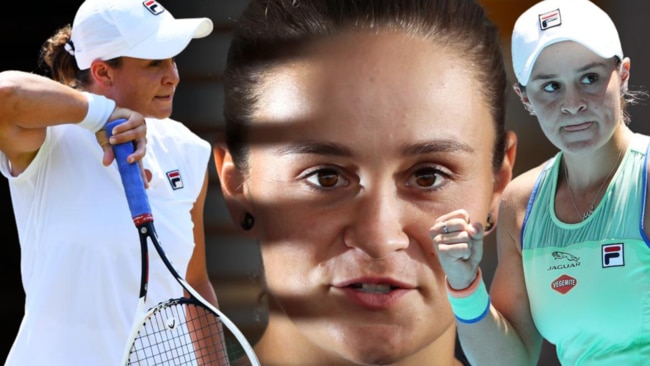
Today, facing Daria Kasatkina for a place in the fourth round, I feed the wrong wolf.
In truth, I’ve been doing this for a while. This crisis has been brewing for months, remaining largely invisible to everyone but those in my inner sanctum, but now it spills over in the very public spotlight of the British grass-court season.
Watch Tennis Live with beIN SPORTS on Kayo. Live Coverage of ATP + WTA Tour Tournaments including Every Finals Match. New to Kayo? Start your free trial now >
The issue is that my good is great, but my bad is horrible. When I’m winning, I look like a million bucks but when my tactics aren’t working, I lack the maturity to solve my own problems.
I’m a 22-year-old highly trained professional athlete, but in this moment I decide on a public tantrum. As the points and games fall Kasatkina’s way, I shake my head and grimace, and I backchat with my box – mostly with my coach. It’s always like this when I’m cornered. I get snappy: just venting, but with venom. There have been flashes like this in other matches, but my natural game has saved me. Nothing can save me today.
I lose the match in straight sets. My childhood dream dissolves and I sink into the loss. I swallow it whole and can feel it in my stomach, which is sick and swollen with something sour – not just losing the match and losing my shit, but losing my dignity too. I shun my closest supporters and cry myself to sleep that night, embarrassed and ashamed.
**
Days later I speak to my coach, Craig Tyzzer, about my outburst. We focus on my fury, how I’d waved him and everyone else away. Tyzz explains something carefully to me now. He can’t watch this show on repeat any longer. He’s sick of the ending.
Something needs to change, and he’s not the one who can change it. Why do I always look like I’m about to take off and then stumble? Why do those stumbles always turn into ruinous
collapse? Why am I so emotionally distraught over wins and losses?
Why can’t I feed the good wolf?
‘You are as good as every one of these girls,’ Tyzz tells me now. ‘But there is something
going on in that bloody head of yours that I have no idea how to fix. We need help.’
**
One thing Tyzz does know is who can provide that help. His name is Ben Crowe, he tells me, a leadership expert and mind coach – whatever that means. So, one Saturday in July, I fly down to Melbourne and drive to Crowey’s office. And, for the first time in my life, I tell someone my tale.
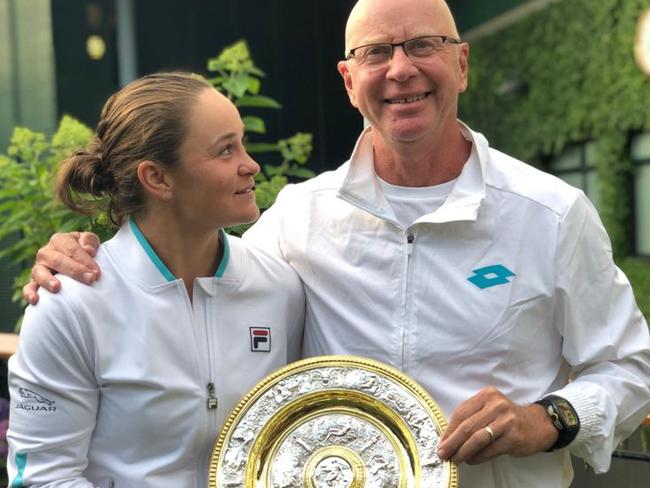
GROWING UP ON THE ROAD: 2006-2012
When I was ten years old, a normal week for me might have looked a little abnormal to you. Every single day was tennis, after school and at weekends.
The only person driving this obsession was me, although the person driving the car was usually Dad. We started going on long road trips to tournaments. We couldn’t afford to fly, so we took Dad’s latest Ford, finding cheap places to stay along the way. I grew up in real time alongside him on the road. I didn’t realise it, but I was learning independence in increments, picking up some new life hack with each stop, about how to take care of myself.
It was all an exciting adventure, this strange sporting life.
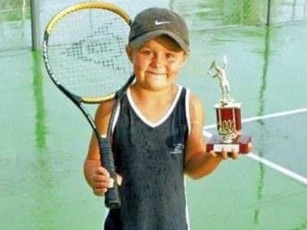
I didn’t have a lot of friends to miss, and that was partly due to my personality. I had great friends – I just didn’t need a lot of them. ‘This is what I’m doing,’ I would say to my mates at school. ‘If you don’t want to do it too, that’s fine, but this is the way I’m going.’ I didn’t experience girl dramas, in part because my friends tended to be boys, or older kids, or adults. It’s actually easier to be yourself, I’ve found, when you spend time with people already notably different from you – similarities sometimes lead to more clashes than differences.
I was also spending less time at school anyway. Mum was wary of the risks of me aiming at a career in professional tennis. And yet she also understood that I would never really succeed unless I put more into the sport than into my studies.
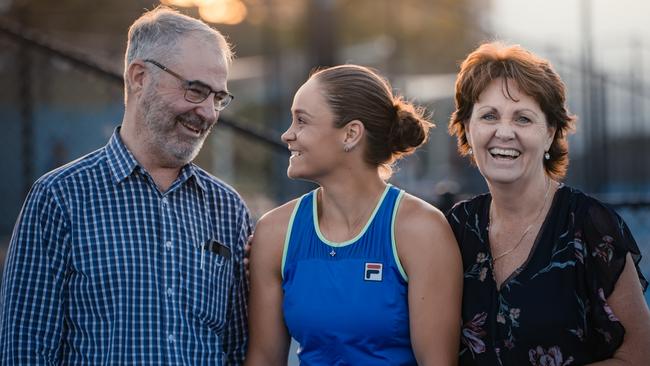
By the time I was entering Grade 9, we had decided to try distance education. My training days would be structured to fit my schoolwork in. I communicated with my teachers online and worked with the educator provided by Tennis Australia in our classroom at the academy. And I hated it. I passed easily but I didn’t enjoy their version of school. Classes became an exercise in ticking boxes rather than exploring the world. My curiosity was sucked out of me and I lost any sense of investing in my own learning. I also began to see myself more as an athlete than as a child, and I wasn’t ready for that.
By the time I reached the senior years of high school, I was attending school maybe 25 days of the year and struggling to keep up. I didn’t attend one day of school in my senior year. I didn’t go to my graduation. Or to my formal.
But if I was sacrificing my education, Mum and Dad were sacrificing much more.
By the time I was 16, tennis was costing our family $65,000 a year: travel and gear and tournaments. They would offset the crippling expense by taking in young tennis players visiting Brisbane, so that I could stay with other families when away on tour. Sponsors helped, too. But tennis is an expensive game. You can be among the top 100 players in the world and live from hand to mouth.
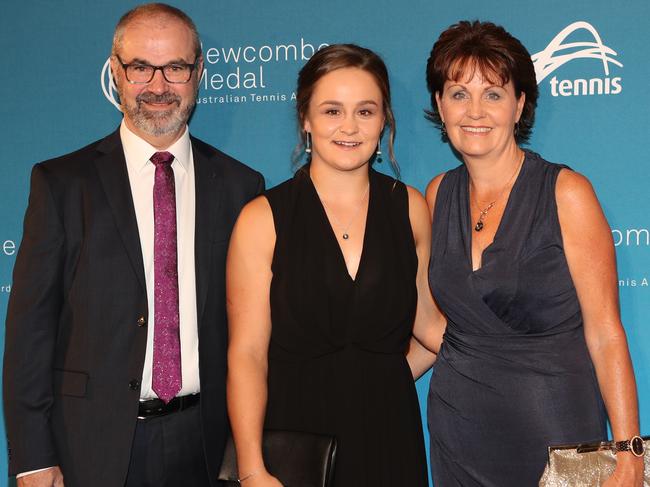
CAN THIS BE REAL?JUNE 2021
Winning Wimbledon means immortality. No one forgets what happens here. I’ve known for a long time that if I were to succeed here, I would be satisfied with my journey. Win one and I’m done.
I thought playing my final match on the most beautiful Centre Court in the world would be perfect. It would be my end point, and perhaps always has been. There’s something specific about the tournament that fits me right. When I play here, I feel as though I grew up playing in the wrong era, like I’m suited to this place – to the restraint and the simplicity of the mood, to the green courts and the tops of the trees you can sometimes see peeking up above the tiered seating, and to the way the game is played here, with agility and elegance and grace. Quiet, please …
**
As I walk out onto court, I do what I always do. Look up and smile.
The roof is open – this is good for me. My opponent is Karolína (Kaya) Plíšková. Her biggest weapon is her serve. If the roof is closed and she can launch at me all day with no elemental distractions, no gusts of wind or bursts of sunshine to throw off her rhythm, I’ll be in trouble. An open court with the sky above is what I want. It also just feels more like Wimbledon should feel.
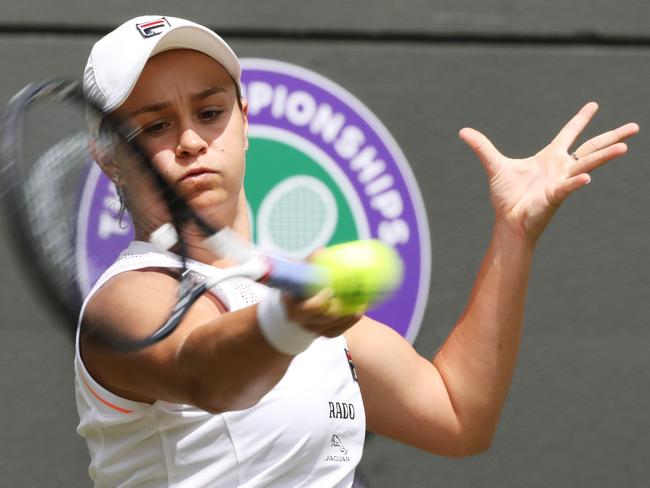
I win the toss and elect to serve. I always do. Give me the responsibility straightaway. My first service game is as good as I could have asked for. We expect Kaya to serve hard and fast in response, but the first one she sends down is slow and tentative. What the hell? I look at her face and see something there. Kaya’s nervous – and that relaxes me. I look at my box and smile.
When you’re playing tennis, you’re also playing mind games. All players have ‘tells’ – subtle cues that reveal how they’re feeling about their place in the match, and what they have left
in reserve. Right now, I read Kaya’s face and sense an absence of energy. I know I can take control. And when you’re in a position of strength like this, you need to use it and push. Hard. You need to bully a little…
**
I don’t remember the last point, but I’m told Kaya hits a backhand into the bottom of the net, and the spectators rise with an almighty roar. That sound rushes through me. Is this happening? I think. Can this be real?
I cover my face and sink to my knees. I quickly hug Kaya and I forget to thank umpire James Keothavong – I later feel awful for that. I toss my racquet down and drop my head and crouch on the court once again, as though I’m simply not ready to open up to all the warmth and rapture raining down. I look up with mist in my eyes. What has just happened? I’m incredulous. I thank the crowd but I know I need to get to my team…
**
The All England Club organises a private dinner for my team – a beautiful five-course meal that is way too fancy for us. I sip a glass of champagne overlooking the Thames and realise that I haven’t called Mum. I FaceTime her now, and I cry and she cries and everyone else does too. My body is wrecked and my heart is exhausted, and there’s nothing more I can compute or experience or absorb.
Our exhausted and emotional celebrations end early, and I drift off to sleep and fall into my dreams, one unreality meeting another. I still don’t understand this glorious day, and probably never will.
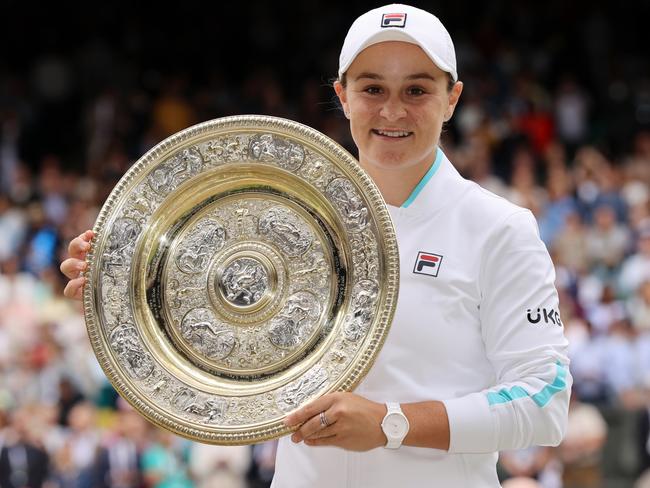
CUTTING THE STRINGS: MARCH, 2022
Just like that, my career is over.
I’d like to tell you I feel stunned or shocked, but I feel good. Great, even. All day long there’s a kind of pulsing wave rushing through me, not of excitement or fear or adrenaline or even relief – just the sense that something important and right and true is happening. Something is starting and something is finishing. It’s done. I’m done.
All of a sudden, this thing that’s been a part of my life for 20 years is no longer, and yet I feel no sadness. It feels natural and normal. I don’t need to chase anything anymore. I don’t need a farewell either. When a chapter in a book ends, you don’t stop reading. Maybe you pause a moment, dwell a little on what you’ve just learned, but then you turn the page and keep going.
That night I go into the garage, where I keep my racquets.
I’ve always protected my racquets fiercely, as if they’re an extension of myself. I know them intimately. How to store them, how to string them and when to string them.
I have a stringing machine of my own, and do them all myself when I’m here. Whenever I can, I like doing things myself. But I know right now that I don’t need to string these racquets anymore. I take them out of their bag and look at them, and I find the racquet I was holding for that final point of my competitive career and I put it aside. It’s special.
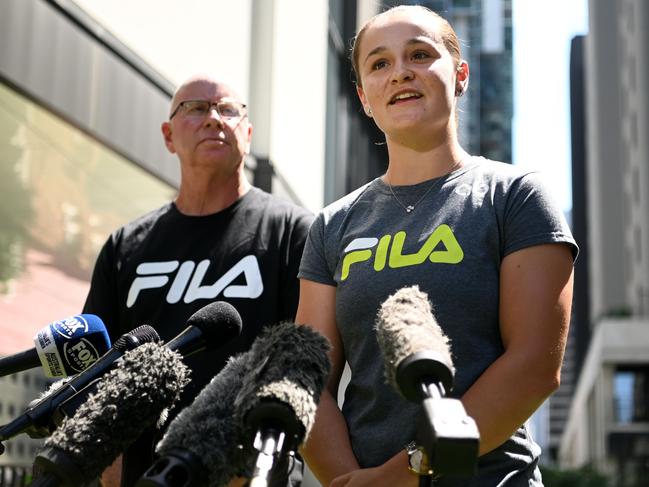
And the others? I take them apart, piece by piece.
I’m accustomed to this process. I’ve kept one racquet of every model and design that I’ve ever played with, and when I store them away I always remove the string and the grip, so they’re just a frame. I have dozens of them, stowed away in suitcases.
The best way to explain why I do this is that I like finality in things. I like a clean cut, a complete list, a box checked, a door closed.
Today I hold one of those spare racquets and I take out a pair of scissors. I start in the middle, snipping the strings in a big cross – north, south, east, west on the racquet face – and then I pull the strings from the outside edge of the frame and drop them in the bin.
I pull the red plastic tape from the top of each handle, and from there I unpeel the grip and toss it in the rubbish too. I pick the Australian Open sticker off the throat. And then I do it
all again for nine more racquets, until they’re all completely stripped. I wipe down the bare frames, slide them into my tennis bag and zip it shut. I lean it against the wall, and think about where I might store it in this house I’m still trying to decorate and organise. I switch off the light. I walk out of the garage, and back into my life.
My Dream Time: A Memoir Of Tennis & Teamwork by Ash Barty will be published by HarperCollins on November 2 and is available to pre-order now.
More Coverage
Originally published as Ash Barty book extracts: Read Aussie tennis legend’s own words on her life and glittering career




